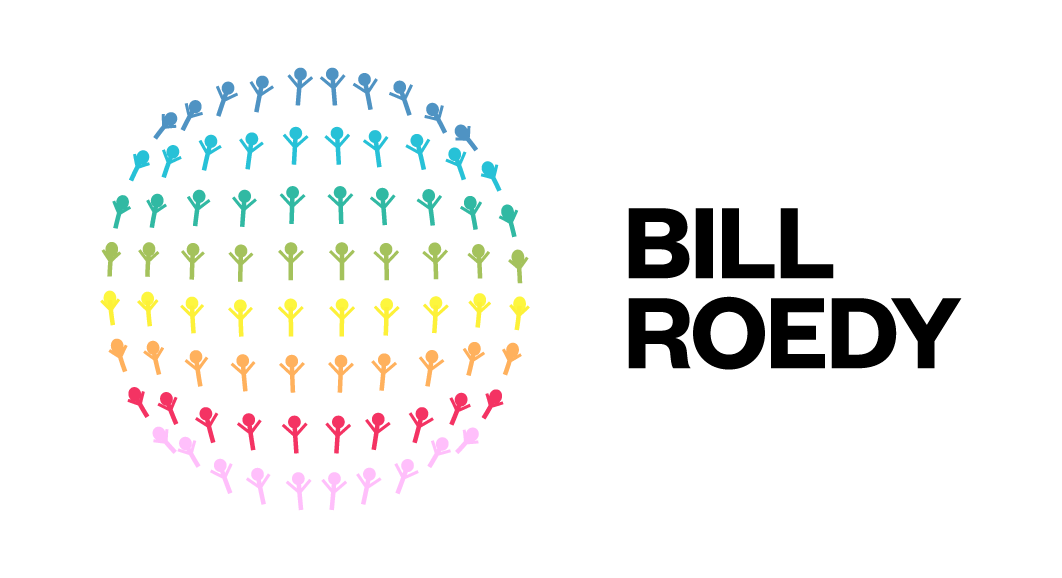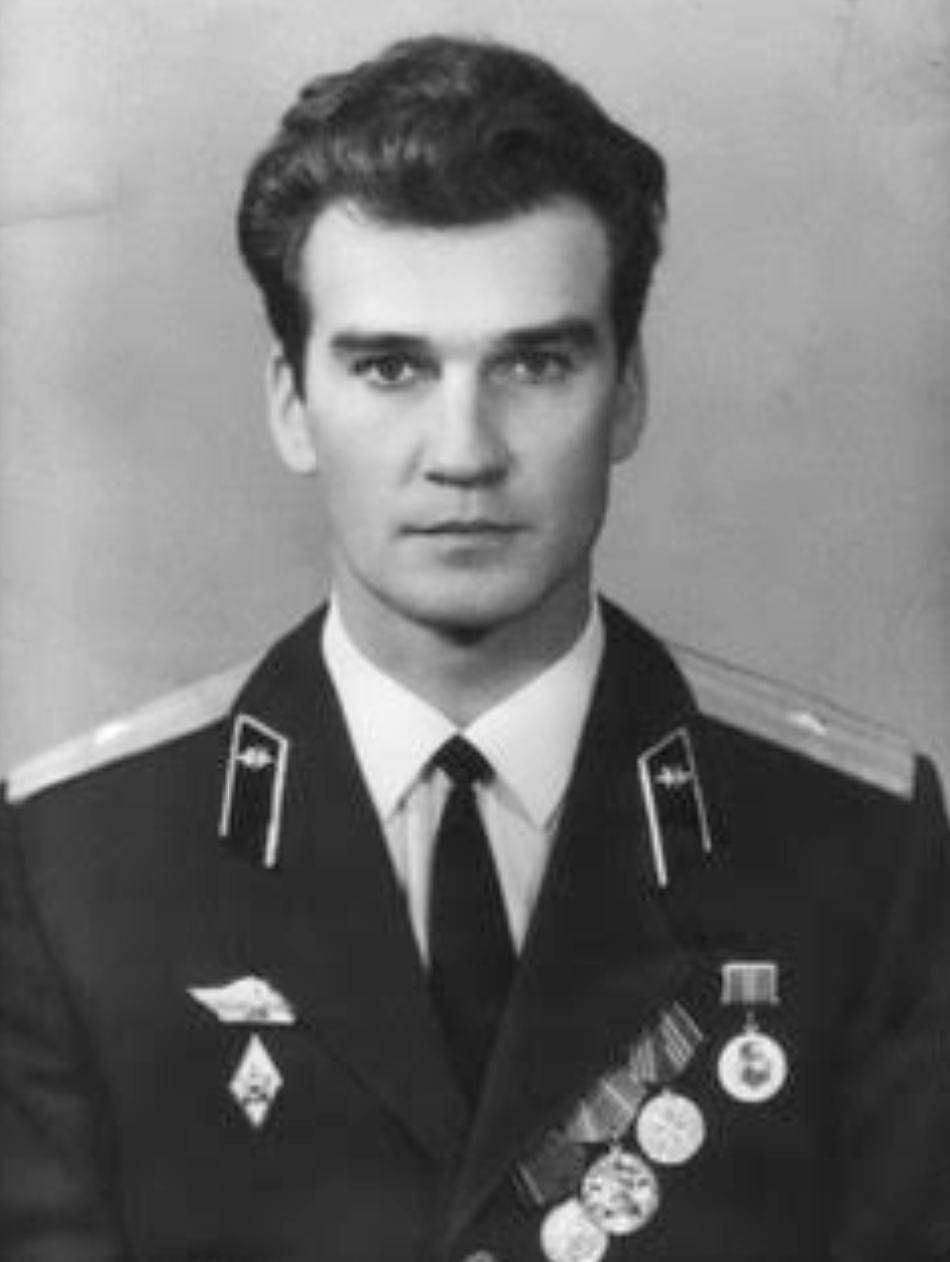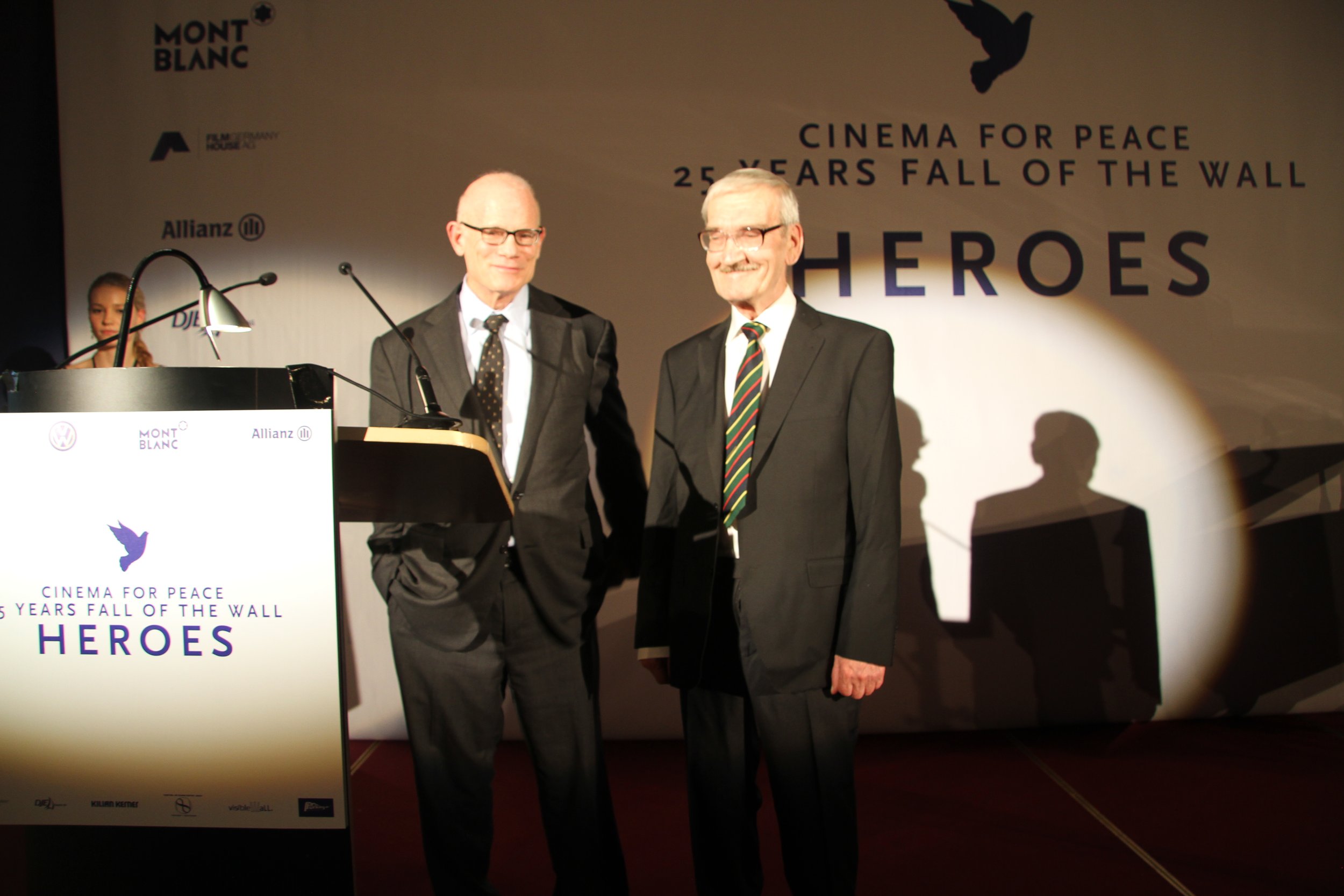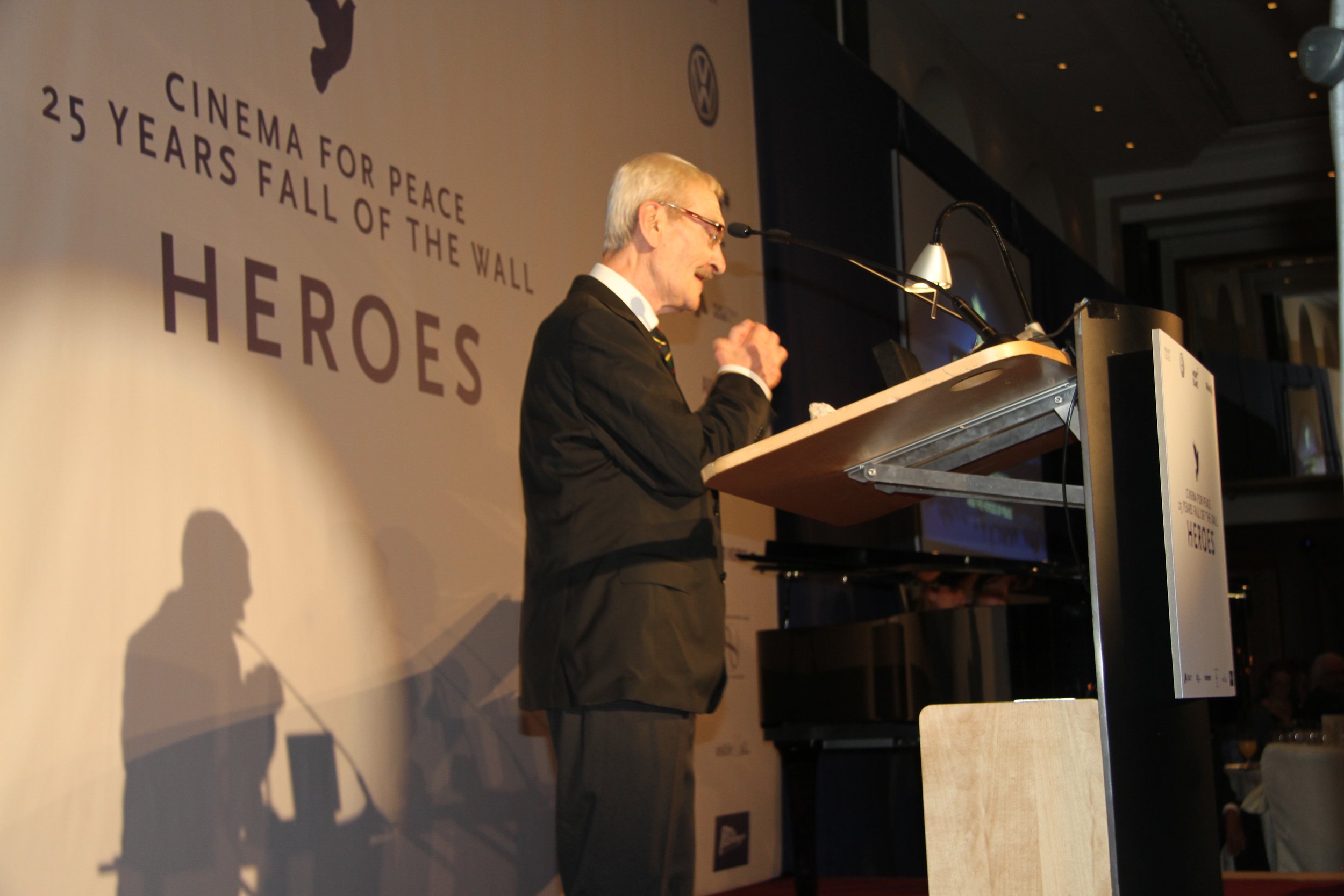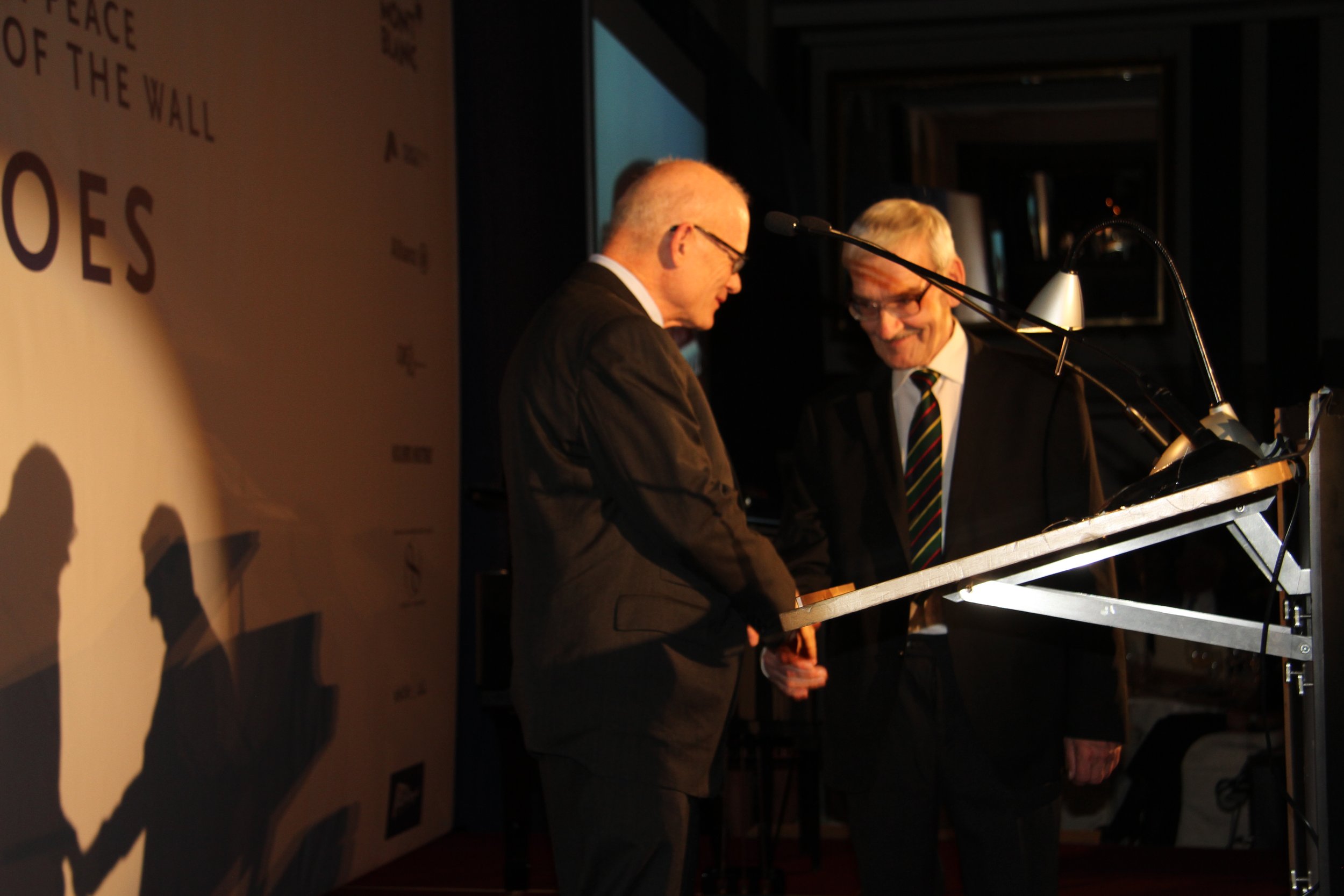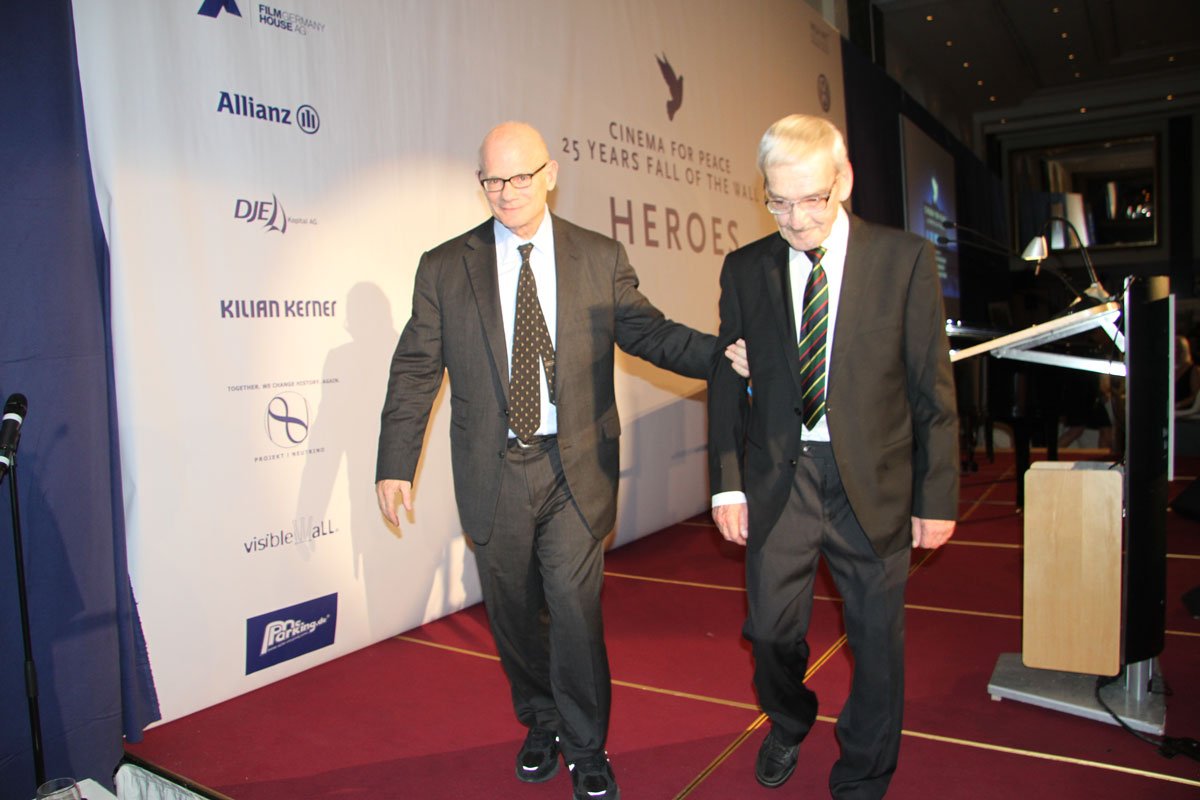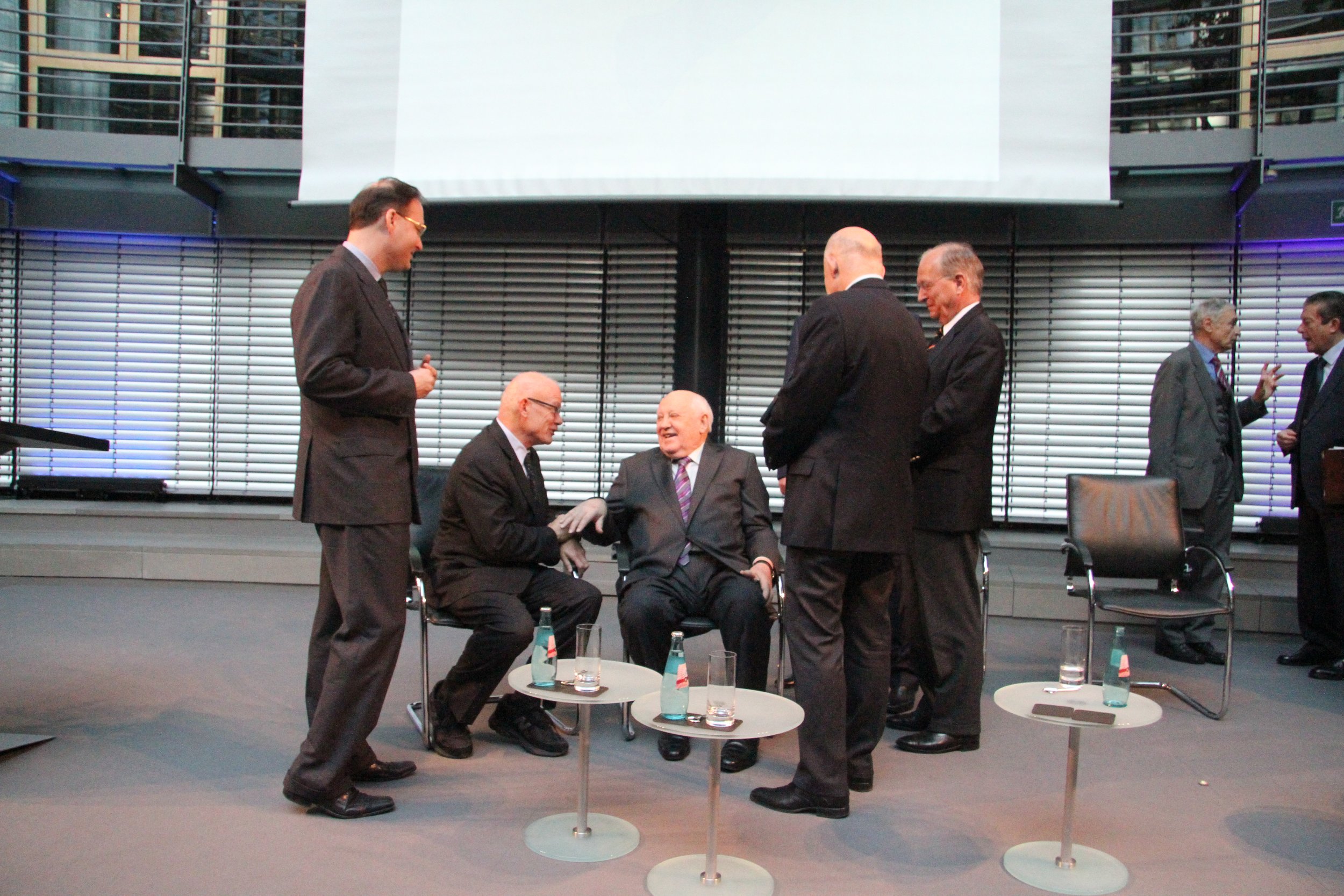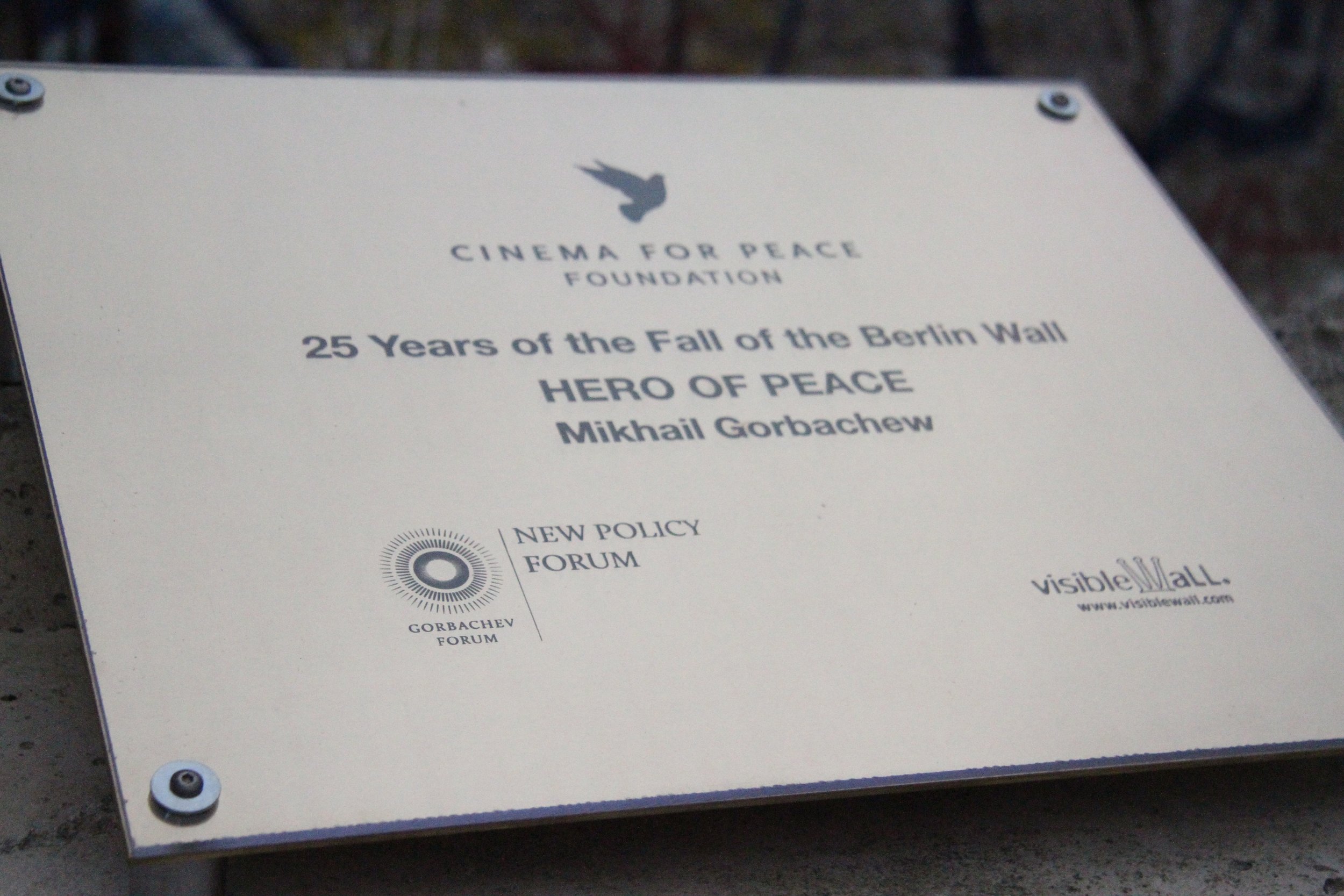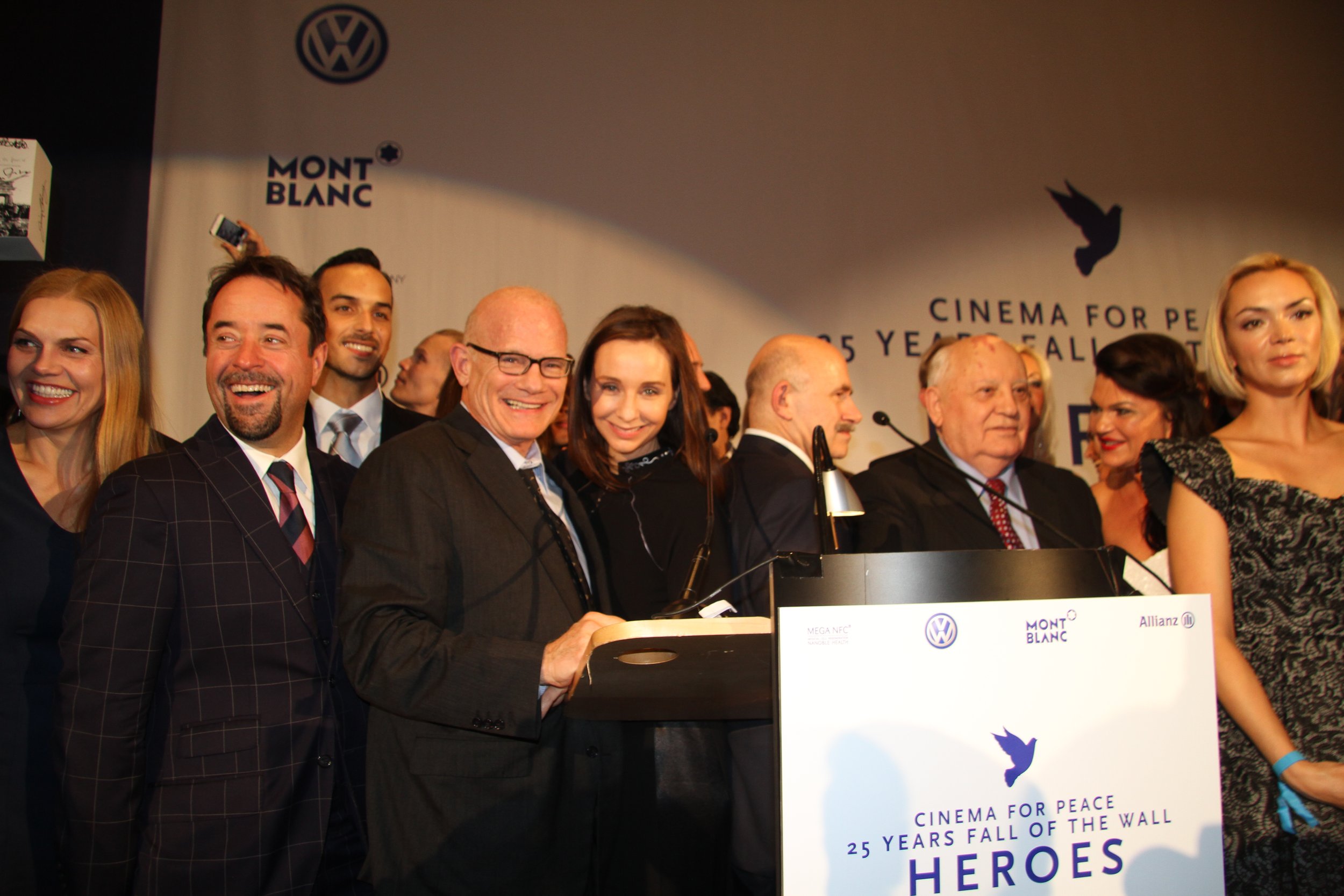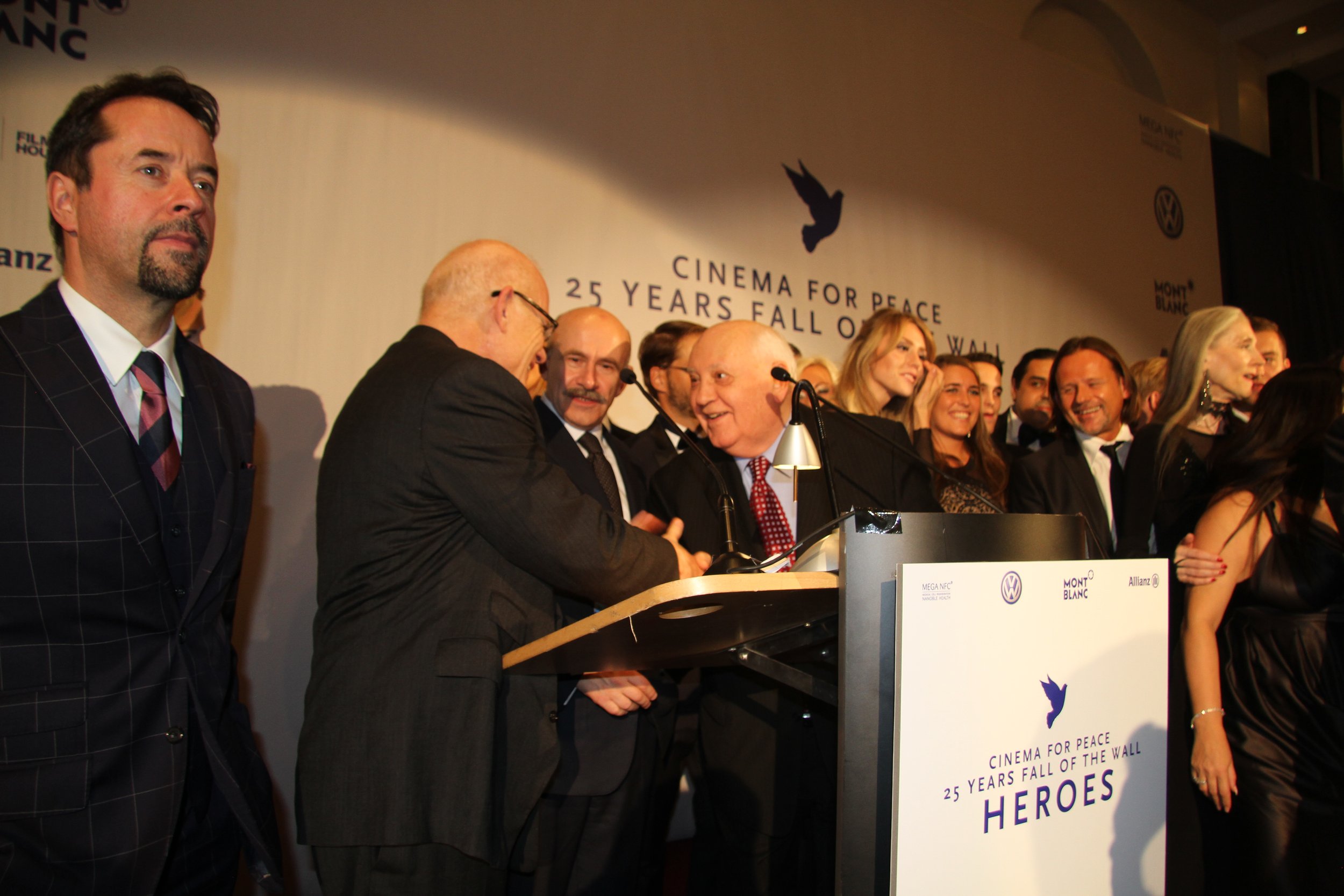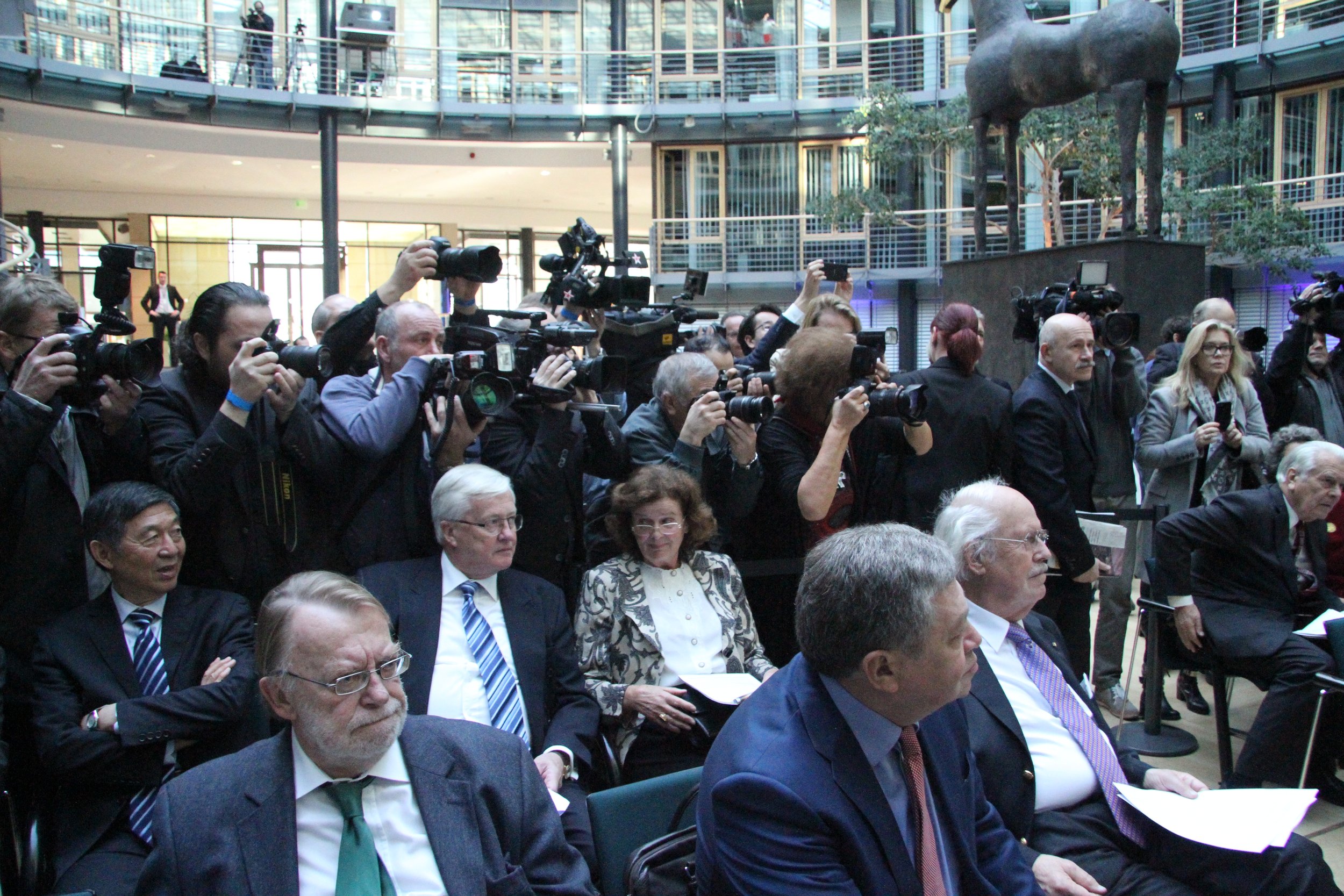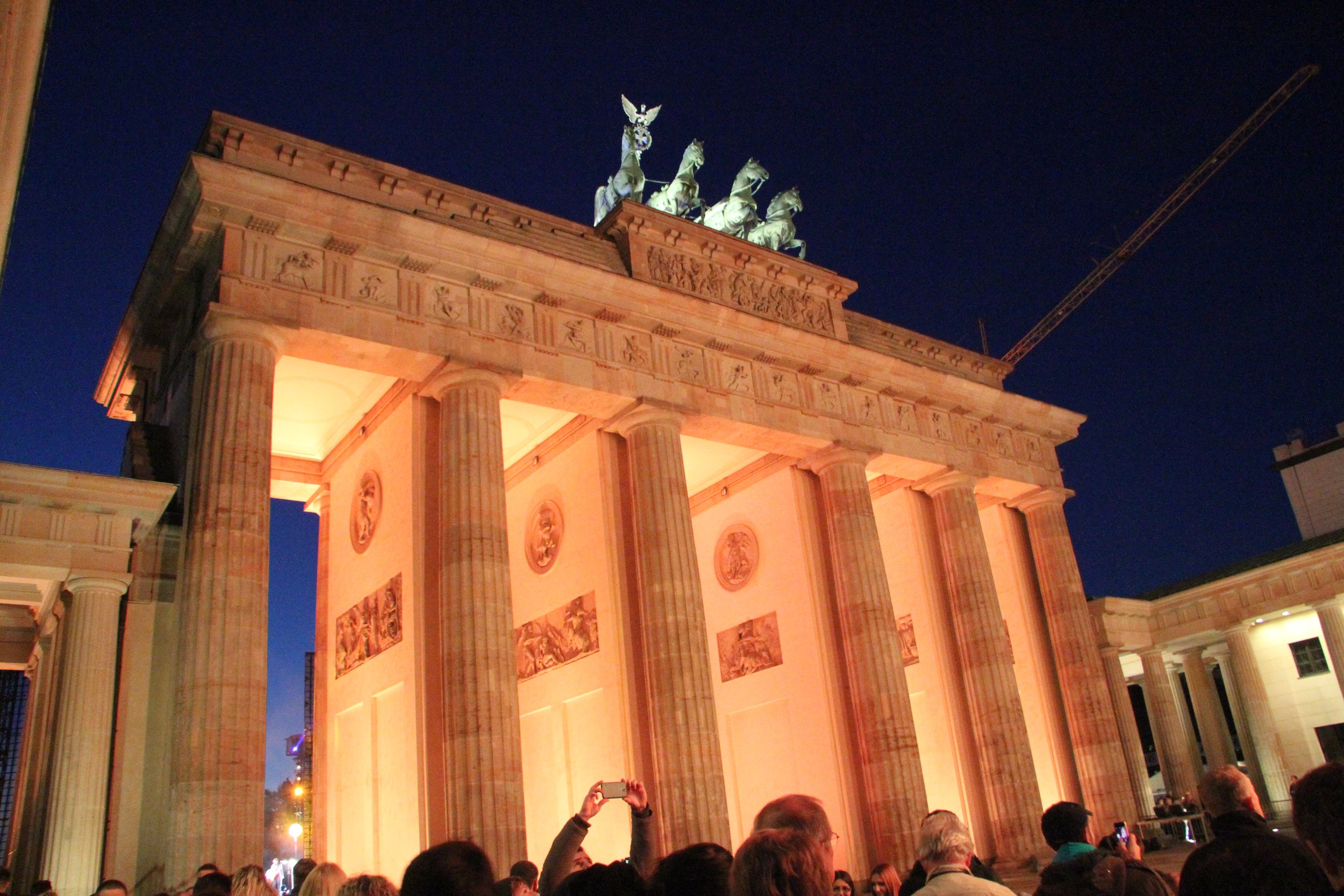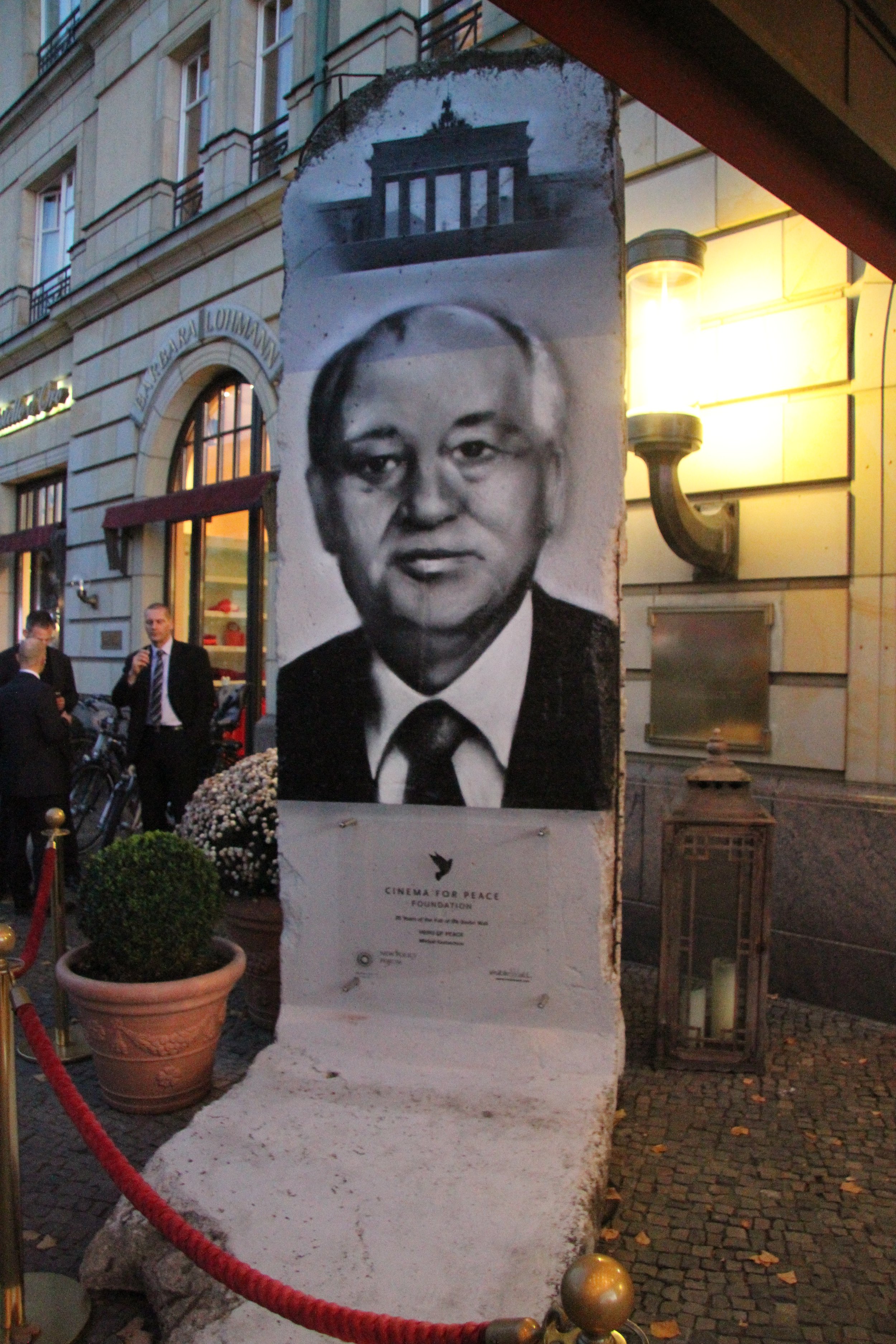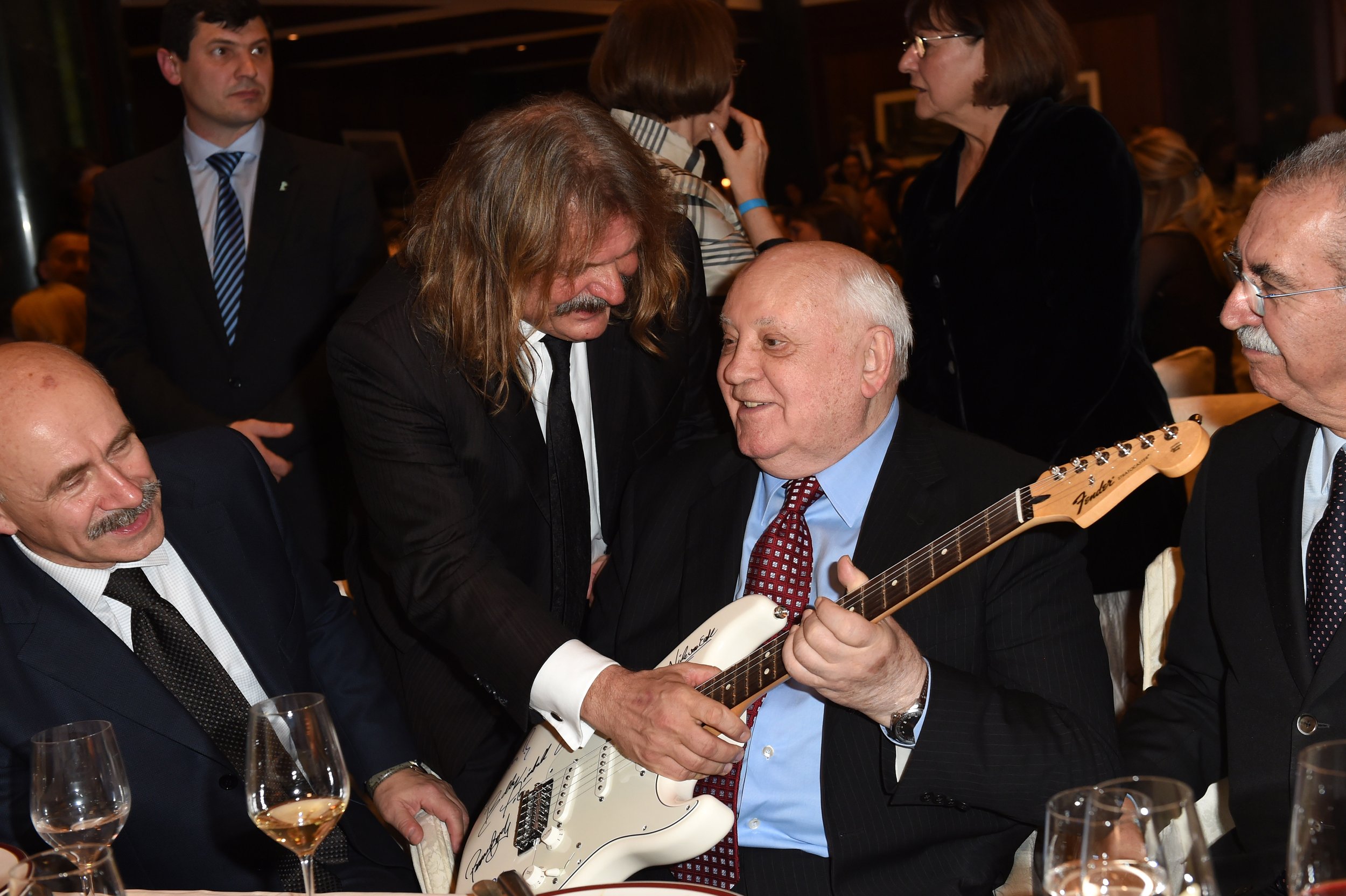Thoughts on Stanislav Petrov’s Impact After His Death
Above: Bill Roedy honoring Stanislav Petrov and President Gorbachev at the Cinema for Peace Gala in Berlin for the 25th Anniversary of the fall of the Berlin Wall, November 9th 2014.
Towering historic figures such as Gorbachev and Mandela and Churchill rebrand their nations, their societies and the world. But there are many instances where men and women far down the chain of command have the opportunity to not only rebrand the world, but to save it. In 2014 I awarded such a man the Unsung Hero Award.
1983 was a year fraught with Cold War breaking points. In September of that year, the Soviets had shot down Korean Air Lines Flight 007, killing all 269 passengers. The Soviet military was convinced that the United States might well be about to initiate a first nuclear strike in response.
Later that same month on September 26th, Stanislav Petrov, the nuclear duty officer that night, witnessed on his screen the signal he had spent his entire career in preparation for. The screen turned red and the sirens sounded with the first U.S. missile, and in quick succession the Soviet computer system confirmed the launch of three more nuclear warheads towards Moscow. The protocol was unambiguous: Petrov was to trigger the call for an immediate counterattack. Had he followed the protocol, you might not be reading this book and I might not have written it. And whatever history would have been written would be apocalyptic. Petrov experienced an educated hunch, but it was highly unlikely that four missiles could have successfully pierced the Soviet defenses with such unerring accuracy. His response was, in fact, to call in an IT specialist at a neighboring base. Petrov’s suspicion was confirmed by the specialist, who verified that this had been a computer fault.
Petrov’s decision not to follow orders and to skirt protocol ended his career. But it saved the planet. At the ceremony that night, Mikhail Gorbachev rose to shake Petrov’s hand. Until that night, the Soviet leader had been unaware of Petrov’s heroism.
Nobody could have respected Petrov more than myself. I too had sat in a similar room in front of a similar computer, with a protocol just as rigorous. What would I have done in his place? I wish I could tell you the answer.
To read the New York Times article on Petrov’s death, click the button below.
